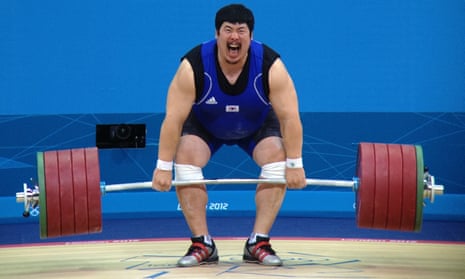It isn’t big and it isn’t clever. But the benefits, known to anyone who has moved home, climbed a mountain, or pushed a broken-down car, have finally been confirmed: according to psychologists, swearing makes you stronger.
The upside of letting profanities fly emerged from a series of experiments with people who repeated either a swear word or a neutral word as they pounded away on an exercise bike, or performed a simple hand-grip test.
When people cursed their way through the half-minute bike challenge, their peak power rose by 24 watts on average, according to the study. In the 10-second grip task, swearers boosted their strength by the equivalent of 2.1kg, researchers found.
“In the short period of time we looked at there are benefits from swearing,” said Richard Stephens, a psychologist at Keele University, who presented the results at the British Psychological Society meeting in Brighton.
Stephens enrolled 29 people aged about 21 for the cycling test, and 52 people with a typical age of 19 for the hand-grip test. All were asked to choose a swearword to repeat in the studies, based on a term they might utter if they banged their head. For the neutral word, the volunteers were asked to pick a word they might use to describe a table, such as “wooden” or “brown”.
“We asked them to repeat the word throughout each test,” Stephens said. “They don’t scream and shout it. They repeat it in an even tone.” The work builds on previous research by Stephens, which found evidence that expletives increased people’s tolerance to pain.
The findings may not come as a surprise to those who have let rip with profanities to spur themselves on. Stephens recalls a friend of his, Mark Foulkes, who in 2013 took part in a tandem bike ride from Reading to Barcelona to raise money for a mobile chemotherapy unit. “Swearing was a prominent feature of them powering up the Pyrenees,” Stephens said.
In the latest study, people’s heart rates did not rise any more when they swore, a finding that suggests the expletives were not triggering the so-called fight-or-flight response. “Quite why it is that swearing has these effects on strength and pain tolerance remains to be discovered,” Stephens said.
“We’re not telling people something they don’t already know, but we’re verifying that in a systematic and objective way,” he added. “I think people instinctively reach for swearwords when they hurt themselves and when they’re looking for an extra boost in performance.”

Comments (…)
Sign in or create your Guardian account to join the discussion